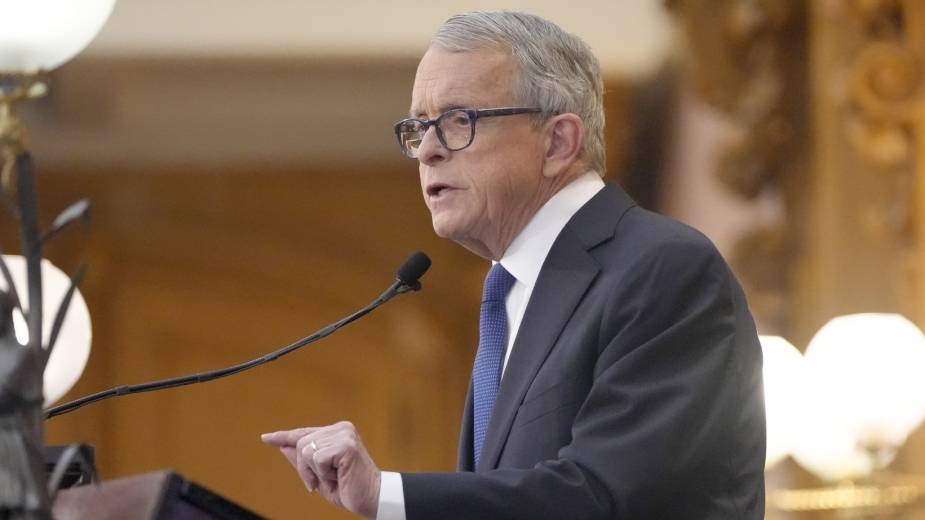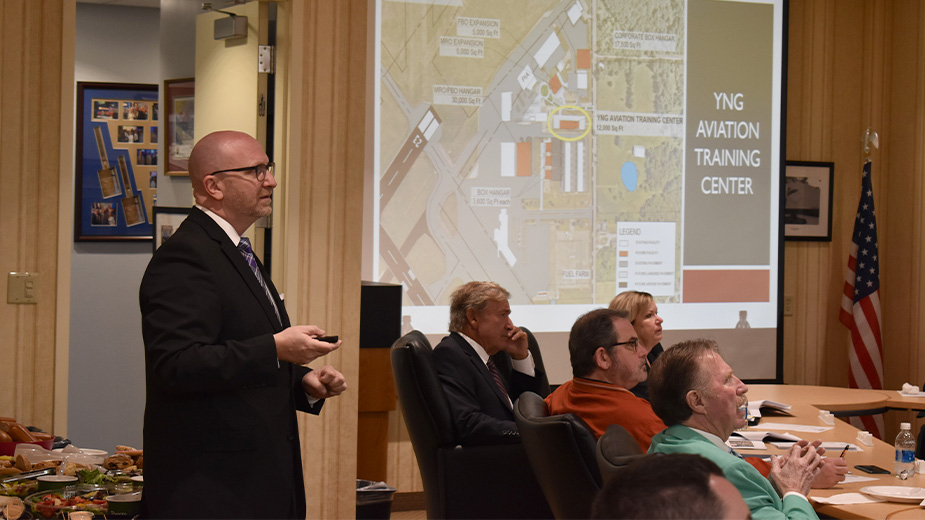Woodberry Takes Pride in City’s Work to Create Jobs
YOUNGSTOWN, Ohio — When she was in school, T. Sharon Woodberry knew that she was interested in working in some aspect of government, but didn’t know which aspect.
Hired by the city of Youngstown nearly two decades ago, Woodberry today is its director of community planning and economic development.
After graduating from East High School, Woodberry earned her baccalaureate in public administration at Eastern Michigan University.
After working at a law firm and at Edward Jones Investments, she was hired in 1998 as a secretary in the city’s economic development office. Before long, Woodberry found her role expanded beyond secretarial duties.
“At that time, we didn’t have any programs that were targeted specifically for small businesses,” she recalls.
Conversations between the city and the U.S. Small Business Administration led to what eventually became the Youngstown Initiative, a program she was charged with structuring. In 2000, the city created the position of development officer for her.
In 2004, Youngstown received SBA’s Region V Leadership Award for Economic Development for the program.
Later Woodberry was named deputy director of the office and moved up to director in 2007. When Mayor John McNally decided to merge the community development, planning and economic development offices in 2014, he named Woodberry to head the new department of community planning and economic development.
“She brings some great communications skills,” McNally says. Representatives from companies he encounters mention her accessibility and her willingness to help with projects and how she comes up with “creative solutions” to help them.
Economic development jobs are tough, particularly in an area such as Youngstown “where you don’t have a huge amount of resources,” the mayor says. “We don’t have cash just sitting there so we have to be creative.”
One expression of that creativity has been to use water and wastewater grants to further development projects, Woodberry said.
“We’ve been able to help a lot of our major construction projects through our water and wastewater funds, using that wherever it’s eligible,” she said.
Funding challenges have compelled the city to be “very strategic” in terms of how it uses the Youngstown Initiative program, she said. In the past, the city’s general fund paid for the Initiative, and its “sole purpose” was working with companies that promised they would create jobs.
Use of Community Development Block Grant funds comes with more restrictions in meeting specific job creation goals and who’s hired for the jobs created.
Youngstown counts among its available economic tools the state tax abatement program. “Locally we have pushed it in the most aggressive way that we can in terms of offering the maximum abatements available under state statute,” Woodberry says.
Among the companies that Woodberry has worked with is Brilex Industries, which has benefited from the Initiative and other city programs. Brilex has had a “solid, consistent relationship with the city” since it purchased and moved into its building on Crescent Street in 1998, and Woodberry has been part of that, the company president, Brian Benyo, says.
“Over that whole timeframe, I’ve always found her to be very straightforward, personable, capable. She’s someone who knows how to get things done and not make things more complicated than they needed to be,” Benyo says.
Woodberry counts Vallourec’s $1 billion pipe mill, which began production in 2013, and the VXI Global Solutions call center, which began operations in 2009, among the biggest wins Youngstown has savored during her tenure with the development office.
“Vallourec probably was the largest investment that had taken place at that time nationally,” she says. Although the company has sharply reduced its workforce because of the downturn in the oil and gas industry, the city is seeing an “ongoing impact” from the role the company is playing on the Route 422 corridor.
“It’s a larger win for what we’ve accomplished with brownfield development,” she says.
VXI has grown from leasing one floor at 20 Federal Place to 2½ floors plus a recruitment office on the ground floor and employing upward of 1,000. “I don’t think we can find a project that was more successful in employing city residents,” she says.
Less pleasant days are those when a company issues a notification that it will downsize or close. In March, for example, Exterran – which opened in April 2013 – announced it would shutter its plant here, another casualty of the oil and gas downturn.
“It hits you hard when you get those because it’s not a matter of only lost revenue for the city, she says. “It’s employees who no longer have jobs and the impact that comes along with that.”
Woodberry admits to “a degree of frustration” in aligning the city’s workforce with the jobs available. “We’ve got unemployment numbers that we’re trying to bring down. We have a lot of people who are seeking employment,” she says. “But on the flip side, when I‘m talking with companies, they can’t find good employees, they can’t find skilled employees and they can’t maintain the workforce that they need.”
The appeal of working in economic development is to “tangibly see an outcome of what you’re doing,” and Woodbeery enjoys encountering in public the people now working for a business she helped attract to the area or expand.
“There are certain accomplishments that you can feel good about because you saw them from a conceptual stage to having investment happen and then jobs that were an outcome of that,” she says.
Pictured: T. Sharon Woodberry.
Copyright 2024 The Business Journal, Youngstown, Ohio.



